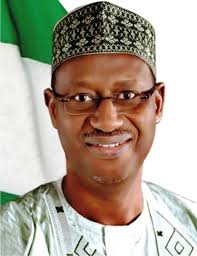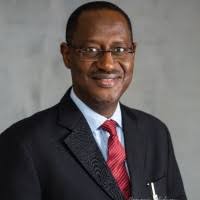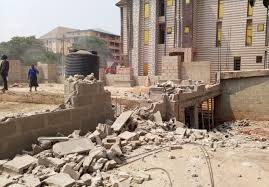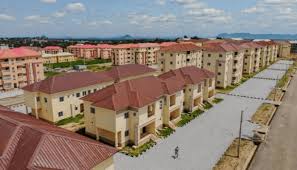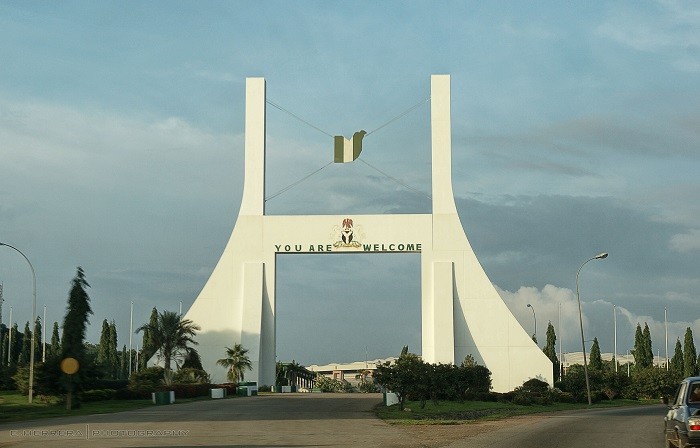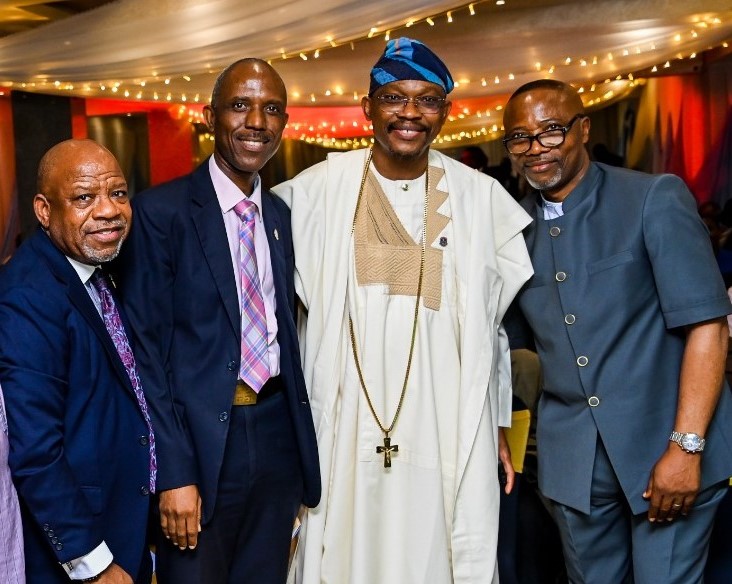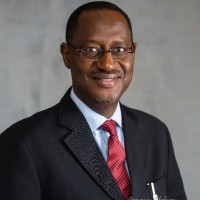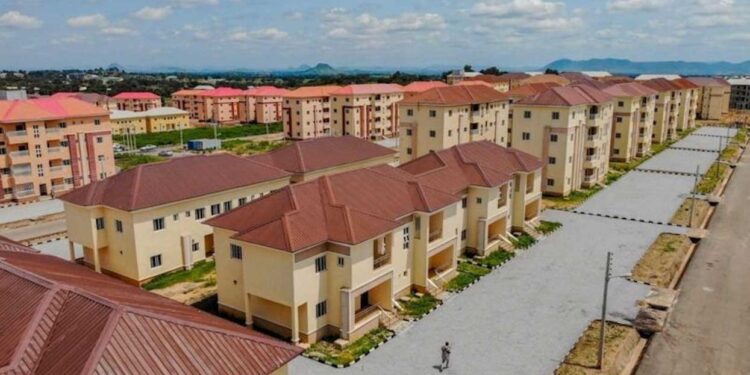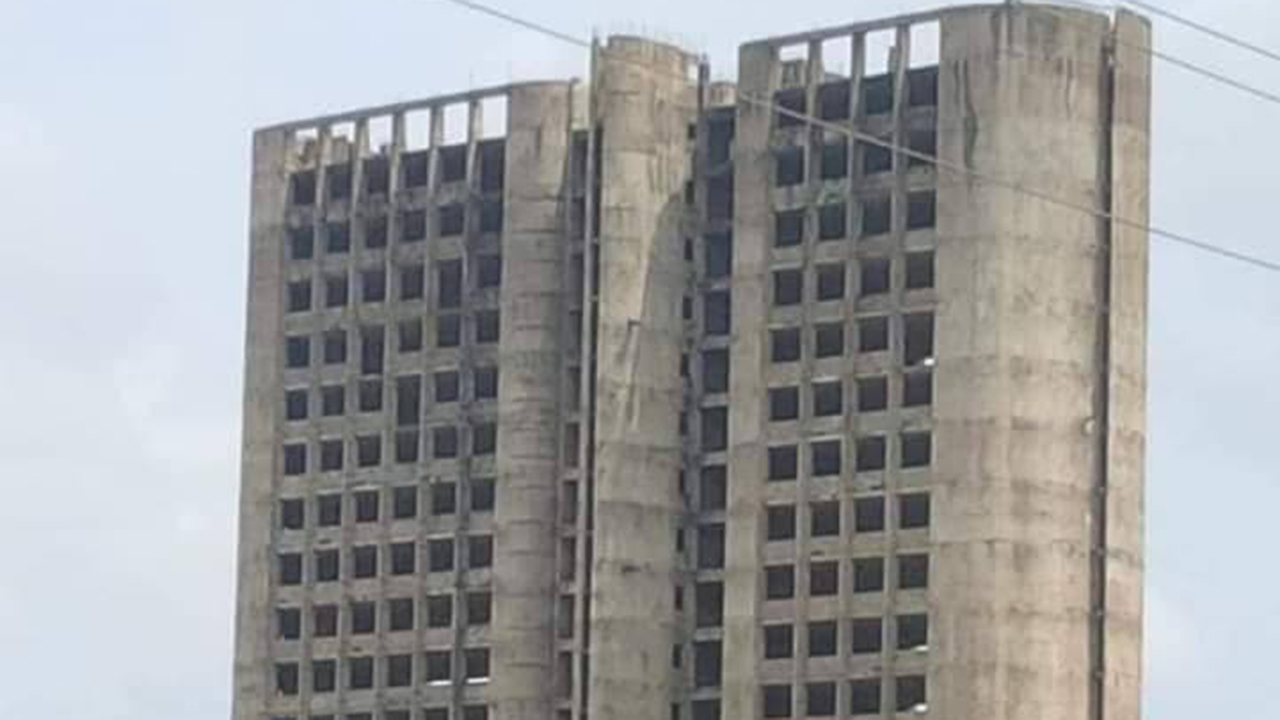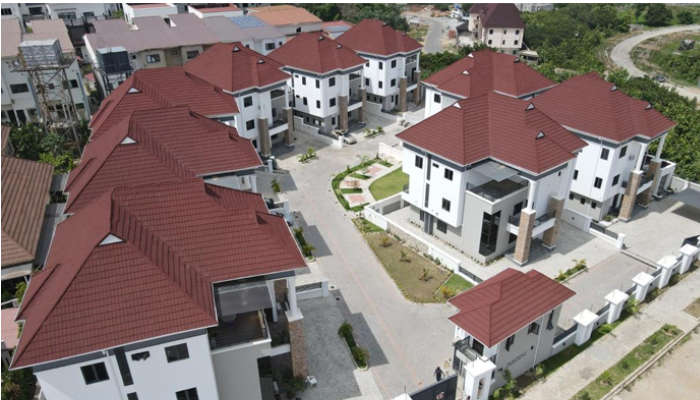
‘Government should prioritise physical planning, industrialise housing production'
REMI MAKINDE is a former president of the Nigerian Institute of Town Planners(NITP). He spoke to VICTOR GBONEGUN on the need to adopt multiple strategies in addressing housing shortfalls and utilizing information and communication technology to improve professional development.
Town planning practice has evolved in methodologies. What should practitioners do to improve the profession in Nigeria?
First and foremost, planners need to take part in government and governance. I am happy that many town planners are getting interested and some of them are been elected into the house of assemblies and many are been appointed as commissioners in charge of physical planning and urban development for states that really understand planning. That has been very helpful.
Planning practice in Nigeria as we were taught in the university is between the government and the people, and of course politics too, and it means that the practitioners should get involved in politics in reaching out to the government and the people. You find out that government prioritizes its responsibility to the people and that is the more reason why town planners, if they want to succeed, must get involved with the government and of course represent the people properly Take, for instance, if they have a plan, to fund the plan, they have to convince the government on why they have to fund the plan and what they tend to achieve by doing that. We have to convince those in charge of the government to fund development plans.
There was a stage in Ogun State when a military governor came into office and awarded master plans for five major towns and cities like Abeokuta, Sagamu, Ilaro, Ijebu-Ode, and Ijebu Egbo. These were given to consultants, and by the time they submitted the final stage of their plans that military administration has been removed and another one came. When the consultants submitted their reports to the new administration and asked for the payment of their fees, the administration call people in and said with the money these people are asking for which was almost peanut, I could tar about 100 miles of roads in different parts of the state forgetting that without a good plan, there would not be progress. I expected that a military administration should know the importance of planning to be put in place before going to work.
Plans are to guide the future growth of these towns and cities. The administration didn’t fund the plans and am not sure if these plans have been paid for till now and so most of the towns and cities keep increasing in growth. If the military administration doesn’t understand the need for physical planning, how much more, a civilian administration. But you would be surprised that there is a difference.
When the first military administration of Lagos state, Late Mobolaji Johnson was in office, he had to take permission as a major from the man in charge of the Old West-Col. Adekunle (Governor) before he could visit Epe or Badagry because each time he has to visit Epe, he will have to go through Ijebu-Ode and come down at Epe. Anytime he had to visit Badagry he had to go through Ota through Ade-Odo before coming to Badagry, which was his domain. The military administration said you, town planners, what is happening. The then head of the planning department, Dr. Franklin Femi Akinyemi brought out the map and said, you could go through this swampy Orile-Iganmu through Ojoo and get to Badgry but there is no road there. That was what led to the birth of the first Expressway in Nigeria-the Badagry Road. Bolaji Johnson funded it and so didn’t have to go and beg somebody before been allowed to ply their territory. Also, the Map was looked at and it was discovered that one could get to Epe from Ikorodu via Ito-Ikin and that gave birth to Ito-Ikin Road to Epe. After the construction of the two roads, he had a memo sent to several places that these roads were built with taxpayers’ money and so it was a great achievement.
Those who embrace planning and realize the need to plan that is what they achieve. In 1974 under a military regime, the United Nations advised that we should have a plan for metro Lagos and that metro Lagos will spread to the part of Old West and they called in foreign and domestic consultants. Eventually, in 1975, the contract for the preparation of the master plans was signed with the federal government been part of the deal. That plan has begun and was completed in 1980 when Jakande came in 1979 and funded the finishing of the master plan. He started the implementation of recommendations in the master plan through the construction of schools, which were doing three stripes of learning hours; retain sites for schools, the recommendation for roads and others. I was a civil servant then and I took part in the design of the master plan for metro Lagos and regional master plan.
So you find out that depending on who is in charge of the government, any interest in planning helps the growth of Lagos. The master plan for Lagos gained more from the Civilian administration that Military administration in Lagos state’s history.
The housing deficit in Nigeria remains very huge and efforts to address the shortfall by successive governments in the country haven’t really brought a deeper relief. What advice would you offer the federal and state governments on the challenge?
The issue of housing is such that to provide houses for the low-income group is the responsibility of the government anywhere in the world. But it has to be done with a plan in place. First and foremost, there are different strategies to do this. The number one is the government can provide the land and the infrastructural facilities but this will cost from 60 to 70 percent of the cost of the house itself. Those who are ready to build let the government provide the land and facilities like water, road, power, and others. If the government gives land and you are not building, they should give it to somebody else who is ready. Jakande for example put in those buildings and asked for people to apply and at that time 11,500 people applied. These were the people who paid either 1,100 for two-bedroom flat or N1, 200 for three bedrooms flat as a deposit.
They provided all the shells and you are to finish it to your taste. Only 1,500 people applied and so he built 12,500 instead of his plan to build 15,000. When they asked him why he didn’t complete the 15,000, he said he didn’t want to spend taxpayers’ money wrongly. Those who got the buildings were only paying N38 per month and there was a mortgage bank set up for it for 25 years. Many of those who paid sold their house for N4m and N5m depending on locations.
The other way is to provide a title for the land and make loans accessible at a very reasonable rate and of 10 or 20 percent. Have insurance policy in place should the owner dies so that the insurance policy would cover the rest of the mortgage left so that they don’t kick the family out. Another way the government could provide needed houses for the low-income earners, is to go into industrial housing where you have the fabrication done and then it is assembled at building locations. Look at what happened in China where they built a 57storey building within 19 to 20 days. If the government industrialize housing production, the price of housing will be cheaper for the people.
Many people are been displaced as a result of the government’s efforts to upgrade and reduce slum settlements. How would you advise the government to tackle this menace effectively?
The government should make arrangements for them on where they could move to as palliative measures. The government should involve the people and bring in facilities like roads, drainage, recreational places, health centers, and others. The scenario with Tarkwa bay has been there for years as a slum. If the people in Singapore or the United Arab Emirates say they won’t develop such places in their countries, they won't be where they are today. Government has been giving them a lot of notices.
They can’t be there forever.. I was the first director in charge of urban renewal schemes in Lagos state and Lagos state government all through the years has been doing a lot in the form of urban renewal programs.
Lagos was the first in a federation that ever gave attention to the development of slums. Maroko was the only slum that has been cleared in Lagos sate and they couldn’t have to retain Maroko because it was going to be underwater because in 1991 we had rain that fell for 16 continuous days in June and the place was been submerged.
There are concerns about the curriculum being used in tertiary institutions. What are the critical challenges, how do we groom and develop the capacity of the young professionals?
You will find out that there is a need for specialization. In the school we attended at Polytechnic Ibadan and Melbourne, Australia, there was no room for the specialization but today people now go into housing, urban design, physical planning, transportation, and other special and serious areas. Depending on the university a person attends and their policy would determine what type of town planner you would be.
The young professionals must be made to understand that they have to utilize the information and communication technology age to improve their delivery in the profession. Years ago, you could go through universities and many courses in Nigeria without learning how to use the laptop, the AutoCAD and other modern tools but now it has become a must for young professionals.
Nigeria's population is exploding yearly leading to urbanization. How do we ensure that Nigerian cities are fully planned and illegal structures are reduced to the minimal level?
Well, if we don’t plan the existing cities, and make projections for their growth, we will be killing the cities. That is why I support the preparation of development plans and the structured plans for our towns and cities. We shouldn’t do it to the disadvantage of rural areas and that is why professionals are agitating that the government shouldn’t only plan the cities and towns. For example, Lagos Metro alone uses over 90 percent of the infrastructural facilities in Lagos state.
That is why they should prepare a structured plan, development plan and master plans for all other towns and cities and have projections as well as make the plans revisable every five years putting into mind economic development.
Policymakers often look at the report of the physical development plans as a ‘piece of paper’ and don’t often see the need to prioritize planning? How can the professional in the industry change this narrative?
That is due to ignorance. If people in government understand that whatever policy or plans they might have whether they want to build schools, hospitals, roads industry, and others, 90 percent of these policies and directives would be translated on the land. The use of land is the prerogative of the town planners who know what is best for a piece of land and it should be used for. There is no land that is useless throughout the country. In FESTAC town, the first 200 yards adjoining Badagry road is buffer. One, it is swampy, two is to reduce noise pollution from the city of FESTAC town and that has been retained. The professionals should keep educating the people on the need for physical planning.
Some people have raised issues with the plan-less state of the majority of Nigerian cities and lack of efficient spatial land-use planning while Nigeria has many experts in town planning. What is your position on this?
From experience, Nigerian town planners prepare the plans but it is the government that has to be convinced to fund the plans. We have the ideas and the plans in place but the funding is the problem. The government has a lot of priorities. The Gbagada Expressway up to Ijesha plan left the drawing board in 1949 but it was not funded at all until 1972. That is for about 23 years. The same 1949 Ikorodu road to Yaba, the reservation was there for a ten-lane road but it was not funded until 1972. Those who knew Ikorodu very well will find out that it was two lanes from Ikorodu to Maryland, then, from Maryland, you have four lanes to Lagos without any median stripe.
In the case of Agege motor road plan left the drawn board in 1936, reservation from Idioro to Agege was there, but many buildings were coming in and so many people who got heir approvals from September 1936 to 1973 when the road construction started didn’t get any compensation for their buildings because their buildings were approved under the Interim Development Order stamped on their approvals that they won't get any compensation because of the agreement.
We will bring in the government. On several occasions through the years, the government has been trying to draw a master plan for Ibadan even when the Expressway was drawn and was suppose to by-pass Ibadan, suddenly they provided accessibility and people just started building. Most of the Cocoa farms that were there went into physical development. That was how the problem of Ibadan became a serious one. Eventually, the immediate past administration in the state has in place a master plan that is still being produced.
It took years by different administrations to get a sustainable Ibadan Infrastructural facility done. Ibadan is known for flood disasters, most of the drainage channels have been drawn but unfortunately, they have to continuously maintain it because of careless use and blockage with plastics and refuse dumps.
What are your projections for Nigerian cities in the next five years and advise to Lagos state government?
Many more towns and cities would have more plans in place because in most cases planners have been made to be in charge of physical planning and urban development. Once the plans are in place and they are funded, things will be better for Nigerians and our cities.
We envisaged that the population of Lagos would explode because of our culture, tradition, and need for economic development. Lagos had the best of facility for education, health, employment opportunities and so on. Once there is a motorable road for moving of building materials, people will move anywhere to build. The state government should continue to listen to planning advice and fund planning at the right time.
Source: Guardian
Similar Topics
Event Set to Celebrate Managers Who Shape Careers and Drive Organizational Growth Business...
10 days ago Read MoreGlobal Leaders to Converge in Lagos for Landmark Event Driving Urban Innovation and...
11 days ago Read MoreIn a bold move to redefine affordable luxury housing, Nigerian real estate giant Gtext Holdings has...
19 days ago Read MoreIndustry Experts Urge Anti-Corruption Measures, Innovative Financing to Address Crisis By: Oche...
24 days ago Read MoreLAGOS, NIGERIA – Global real estate consultancy Knight Frank and UK developer Mount Anvil...
26 days ago Read MoreBy Oche Onum Lagos, Nigeria As Nigeria’s real estate sector braces for 2025, rapid...
a month ago Read MoreBy Oche Onum Abuja, Nigeria In a landmark move to combat climate vulnerabilities in urban...
a month ago Read MoreLAGOS, NIGERIA The Federal Government announced plans Wednesday to establish a Real Estate...
a month ago Read MoreAccording to The Guardian's investigation, 70% of Nigerian states rely on manual land...
a month ago Read MoreWhat is the Initiative? The Federal Government of Nigeria has unveiled an N100 billion private...
a month ago Read MoreAbuja, Nigeria’s gleaming administrative capital, has long symbolized hope for migrants...
a month ago Read MoreAbuja, Nigeria The Federal Housing Authority (FHA) has suspended all ongoing construction projects...
a month ago Read MoreLagos, Nigeria Amid Nigeria’s escalating housing affordability crisis, real estate...
a month ago Read MoreRenowned Nigerian gospel artist Mercy Chinwo has broken her silence in an emotional video...
2 months ago Read MoreThe Nigerian real estate market is projected to hit $2.25 trillion by the end of 2025, according to...
2 months ago Read MoreNigeria’s Minister of Housing and Urban Development, Ahmed Dangiwa, has called on...
2 months ago Read MoreAffordable Housing and Luxury Properties Set to Propel Nigeria's Real Estate Market Over the Next...
2 months ago Read MoreHope for improved housing supply in Nigeria may remain unfulfilled, as the 2025 fiscal budget...
2 months ago Read MoreNigeria commemorated its annual Armed Forces Remembrance Day on January 15, honoring military...
2 months ago Read MoreNigeria’s ongoing GDP and CPI rebasing reveal real estate has overtaken oil and gas as the...
2 months ago Read More

